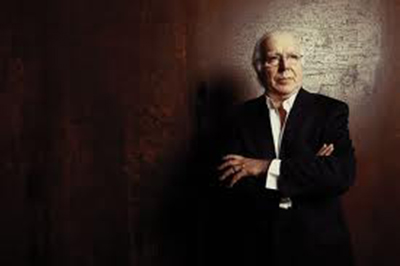Carlos Do Carmo

Carlos Do Carmo News
"Fado E Amor" out now.
Carlos Do Carmo Links
Carlos Do Carmo Albums
Carlos Do Carmo Biography
Carlos do Carmo was born in Lisbon. He is the son of Lucilia do Carmo (one of the most famous female Fado singers of the XX century) and Alfredo de Almeida a book publisher who later went into the hotel business. One might say that Carlos do Carmo grew up in an artistic environment. His parent's house, in the old neighbourhood of Bairro Alto, was a gathering place for some of the most influential personalities in Lisbon's artistic scene. It was in 1963 that Carlos started what turned out to be one the most successful careers by a Portuguese artist. To a vast extent, this happened because Carlos was brave enough to tackle a world where female singers ruled, and because he was bold enough to add new elements to Fado, such as the double bass or orchestral arrangements, he also included lyrics by the most talented contemporary Portuguese writers and poets in his repertoire.
His recording career is full of successful moments, several of his albums reached Gold and Platinum awards and "Um Homem no Pais" was the first CD ever released by a Portuguese artist.
One can't dissociate Carlos' name from the most popular and genuine Portuguese values. His voice is filled with saudade and loneliness but also love, hope in the future, or the happiness you feel at the street celebrations that each year honour Santo Antonio, Lisbon's patron saint.
Carlos do Carmo is admired and esteemed by his public not only as a talented singer but also as someone in touch with the noblest social causes, a man profoundly interested in his country's music but very aware of the world that surrounds him.
Having performed all over the globe, his concerts in Paris' "Olympia", in Frankfurt's and Wiesbaden's Operas, in Rio de Janeiro's "Canecao", Helsinki's "Savoy", Madrid's National Auditorium, Saint Petersburg's Theatre, Montreal's Palace des Arts, Copenhagen's "Tivoli", the Queen's Theatre in De Hague, the Latin America's Memorial in Sao Paulo and at the Teatro Dom Pedro V in Macao are some of the highest moments of his career. In 2003 he celebrated 40 years of professional activity with a concert at the prestigious Coliseu dos Recreios in Lisbon.
From October 15th 2003 to February 15th 2004 the Museu do Fado (Fado's Museum) held the "Homem no Mundo" (A Man in the World) exhibition in recognition of Carlos' career, not only as a Fado singer but also for his paramount work in promoting Portuguese music all over the world.
By the end of 2003 the prestigious clockmaker Raymond Weill distinguished Carlos do Carmo with a special gold edition watch, this magnificent and unique piece was later auctioned and the income reverted to Casa do Artista (Artists House) a place for retired Artists.
The album "A Noite" (At Night) was released in 2007: Carlos selected tunes by three of Fado's greatest composers: Alfredo Marceneiro, Joaquim Campos e Armandinho and poems by personalities such as Julio Pomar, Nuno Judice, Luis Represas and Maria do Rosario Pedreira. The album was initially distributed with the biggest selling Portuguese daily newspaper and weekly magazine, the cd's were soon sold out which took Universal Portugal, Carlos's all life record label, to do a rerun that was available all over the country.
Carlos was deeply committed in the making of "Fados", a movie by Spanish film director Carlos Saura. Besides working as a consultant, his performance in "Fados" earned him a Goya Award for Best Original Song for "Fado da Saudade", the song was later included in the new edition of "A Noite" along with "Fado Tropical".
The following year marked the celebration of Carlos' 45 year long career. The festivities started on October 3rd with a concert at Estoril's Casino. For this special occasion Carlos decided to pay tribute to some of the musicians with whom he worked over the years: Victorino d'Almeida, Antonio Serrano, Jose Maria Nbrega, Joel Pina, Jose Fontes da Rocha and the Sinfonietta de Lisboa Orchestra were the very special guests of the evening.
Act two of the celebrations was the release of "Fado Maestro" Carlos's first "Best of" compilation. The album includes songs like "Por Morrer uma Andorinha", "Duas Lagrimas de Orvalho", "Bairro Alto", "Gaivota", "Canoas do Tejo", "Os Putos", or "Lisboa Menina e Moça".
Last but not least was a concert at Pavilhao Atlantico in Lisbon. On the evening of November 23rd he took the stage of Lisbon's biggest venue. To share one of the most memorable events in his life Carlos invited some of his favourite artists: the fadistas Camane, Mariza and Carminho, his son, Gil do Carmo, the pianist Bernardo Sassetti, the Spanish singer Maria Berasarte and the Sinfonietta de Lisboa Orchestra conducted by Maestro Vasco Pearce de Azevedo. The concert will be for ever in the memory of the over 11.000 persons who attended this magical evening.
Carlos do Carmo is currently a very active member on the team who's coordinating the Fado application to World Heritage and is a consultant for the "Historia do Fado" (Fado's history) TV series. He has been a huge incentive to the many young people that seek to increase their knowledge on this fascinating subject, encouraging them to write about Fado.









